– on behalf of Ethnicity and Race in Communication (ERIC)
Wednesday 21 May 2025
Join the session below (see poster for timezones)
https://meet.google.com/qhp-czfm-edk?hs=224

– on behalf of Ethnicity and Race in Communication (ERIC)
Wednesday 21 May 2025
Join the session below (see poster for timezones)
https://meet.google.com/qhp-czfm-edk?hs=224

June 12-June 16, 2025, Massey University, Palmerston North, Aotearoa New Zealand
Oceania Hub: Aotearoa New Zealand
Hosted by:
Center for Culture-Centered Approach to Research and Evaluation (CARE)
Communication and Media Studies at Massey University
Organisers: Debalina Dutta, Sy Taffel, Sean Phelan, & Mohan Dutta
The Oceania Hub of the International Communication Association (ICA) 2025 conference, hosted at Te Kunenga ki Pūrehuroa Massey University in Aotearoa New Zealand, explores questions surrounding disrupting Communication Research through the lens of Te Tiriti and Social Justice. Drawing on communication scholarship organised around the various registers of social justice, the Hub examines the intersections of communication theorizing and practice, mobilized toward disruptions and consolidation. The hub will be held in hybrid form, with both in-person and virtual sessions. Selected panels, papers, and interventions will be considered for waiver of conference registration fees.
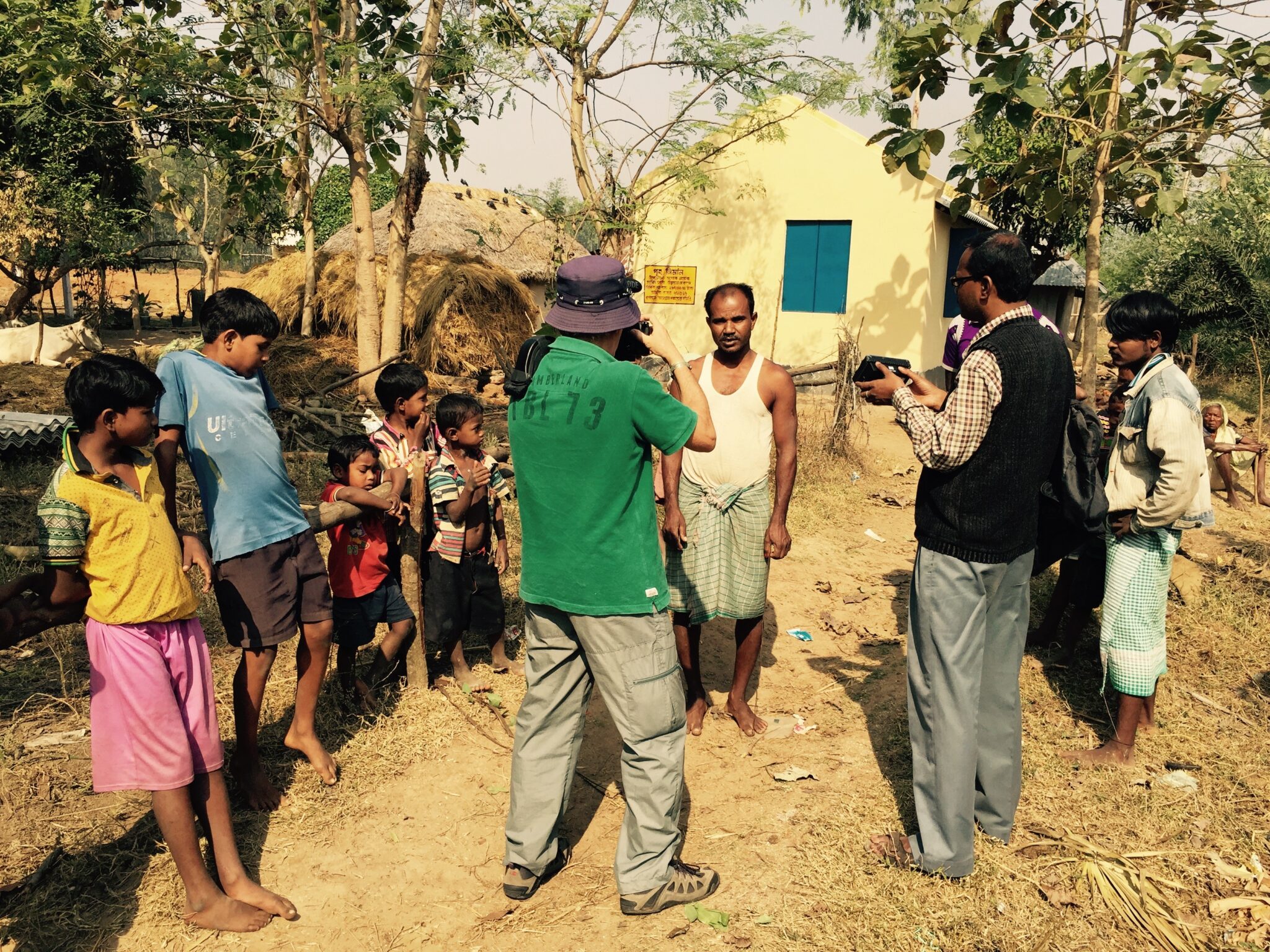
We invite disciplinary and interdisciplinary submissions and multimedia communication interventions (video stories, film, performances, art forms, photographic images, sound productions) from the broader Asia-Pacific, focusing on the representation of the scholarship of communication practice from the Islands of the Pacific. The salience of Pacific participation is constituted around the global sustainability challenges of climate change, rising water levels, extreme inequality etc. We see the hub as offering an opening for disrupting what counts as communication scholarship through the engagement with practices of communication for social change.
The ICA Regional Hub at CARE will comprise a one-day hybrid workshop on “Connecting theory and practice as disruptions.” The workshop will bring in scholars from across the Asia-Pacific in both virtual and face-to-face sessions, focusing on key questions exploring the intersections of theory and practice in the context of addressing complex global challenges at a time when reactionary forces are on the rise. Aligned with the ICA 2025 conference theme of “Disrupting and Consolidating Communication Research,” the workshop will center the questions of disruptions from the context of the Pacific, anchoring the conversations in the struggles for justice and/or sustainability among others in communities across the Pacific. Sessions will connect with local organisers and activists in generating conversations on key questions on decolonizing knowledge. Centering the principles of Kaupapa Māori and indigenous methods across Asia and the Pacific, the workshop will explore the role of community as an organising space for building knowledge.
The Hub will operate in a hybrid model, with face-to-face participation complementing virtual participation. We welcome paper or panel submissions on the following topics and beyond:
We extend a special invitation to postgraduate students, activists and scholars from the Global South, Indigenous, LGBTQIA+ and those living with disabilities.
We invite submissions from the region addressing the theme “Disrupting and consolidating Communication Research.” The submissions can take the form of academic papers as well as multimedia forms beyond the text such as photos, audio, video stories, film, performance etc.
Please submit a title and an abstract no longer than 250 words. If you are submitting a multimedia intervention, please describe the interventions in the abstract. Please email your submission to Debalina Dutta at D.Dutta@massey.ac.nz by March 14, 2025, 11:59 pm NZST.
#ICA2025 #CommunicationResearch #SocialJustice #DecolonizingKnowledge #IndigenousMethods #PacificScholarship #MediaStudies #ClimateJustice #AIandDisruption #CommunicationForChange #TheoryAndPractice #SustainableFutures #HealthCommunication #PoliticalResistance #CriticalDevelopment #CulturalStudies #OceaniaHub #HybridConference #AcademicCall #DisruptiveInnovation #CommunityEngagement
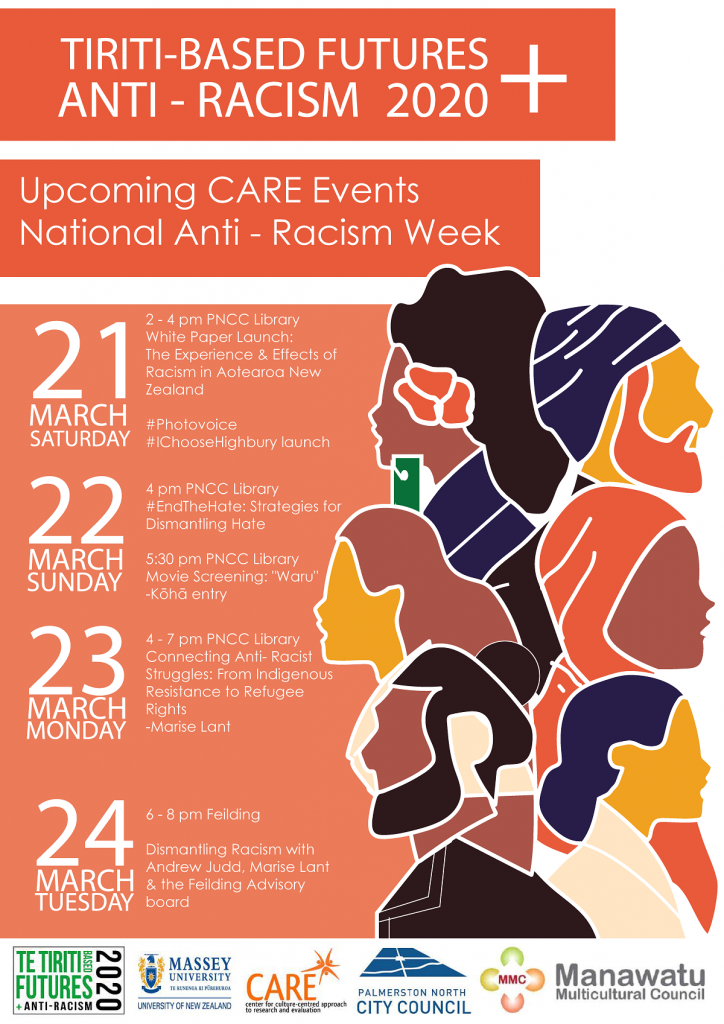
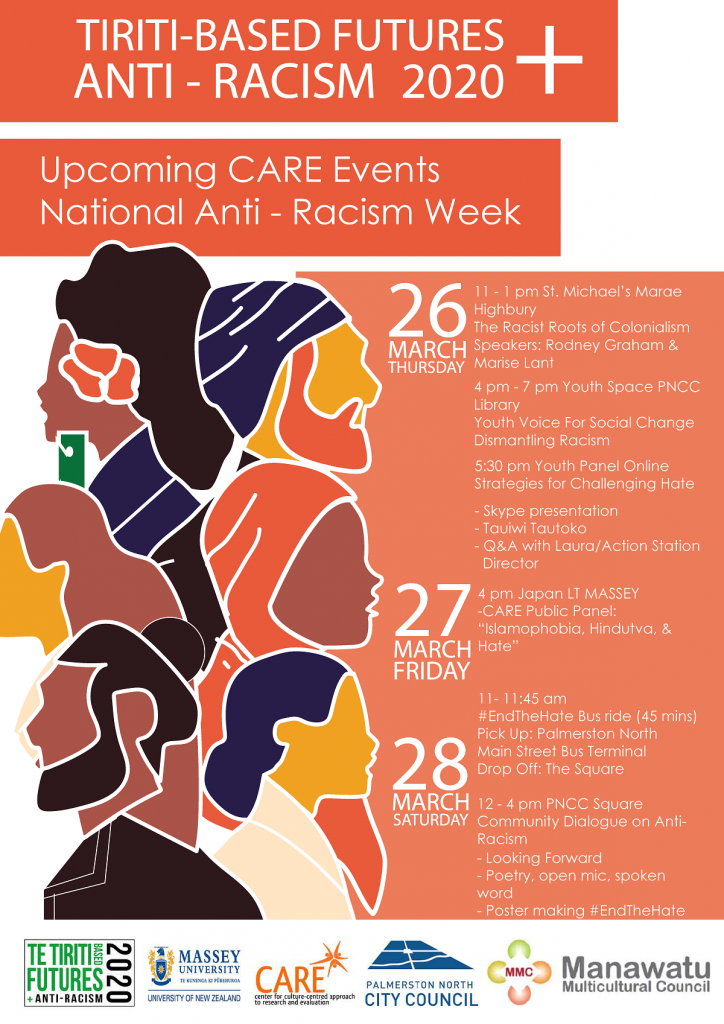
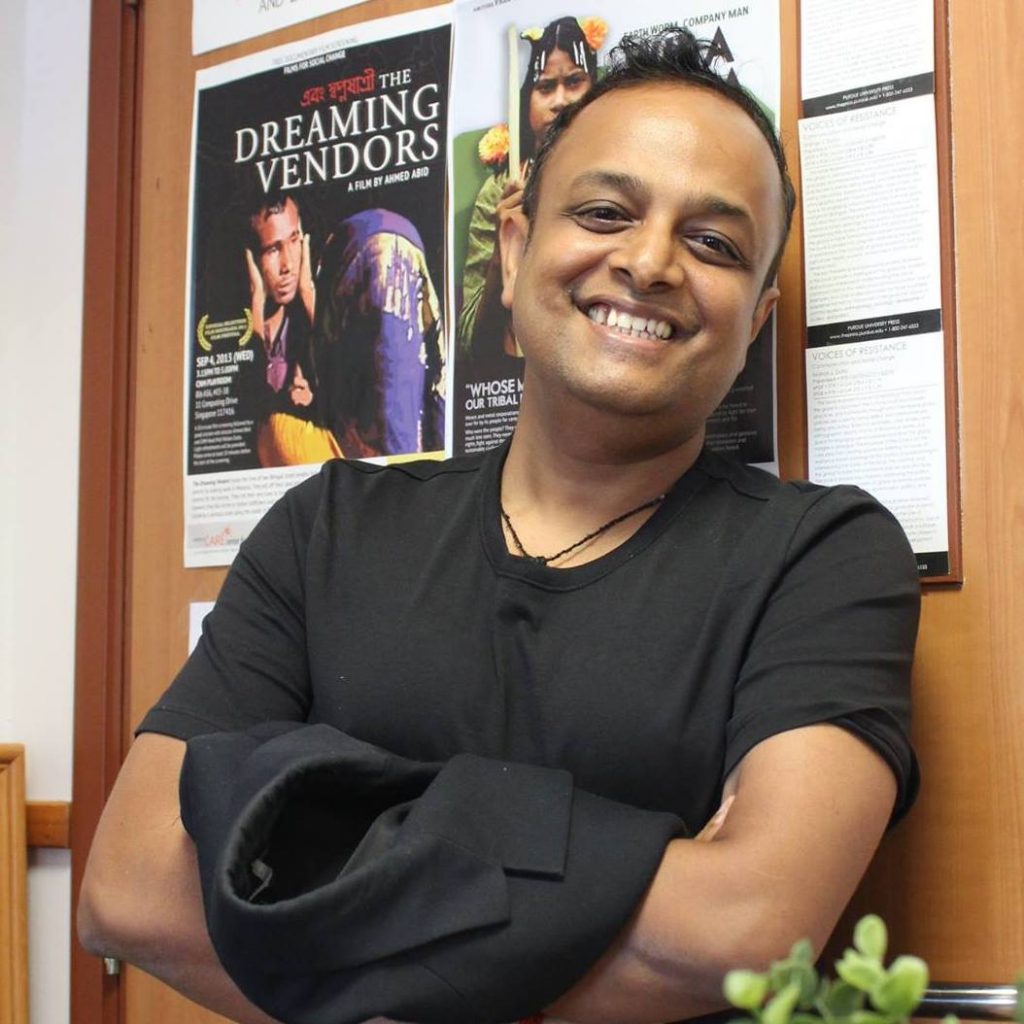
Lisa A. Flores, University of Colorado, Boulder – Contact Me
Bryant Keith Alexander, Loyola Marymount University – Contact Me Mohan Dutta, National University of Singapore – Contact Me Billie Murray, Villanova University – Contact Me
“Food Insecurity in Singapore: The Communicative (Dis)Value of the Lived Experiences of the Poor” – This journal article co-authored with Naomi Tan, Satveer Kaur, Prof Mohan Dutta, and Nina Venkataraman just got published in the Health Communication! Here is a link for 50 free downloads. Link:http://www.tandfonline.com/doi/full/10.1080/10410236.2016.1196416 Abstract: “Food insecurity is a form of health disparity that results in adverse health outcomes, particularly among disenfranchised and vulnerable populations. Using the culture-centered approach, this article engages with issues of food insecurity, health, and poverty among the low-income community in Singapore. Through 30 in-depth interviews, the narratives of the food insecure are privileged in articulating their lived experiences of food insecurity and in co-constructing meanings of health informed by their sociocultural context, in a space that typically renders them invisible. Arguing that poverty is communicatively sustained through the erasure of subaltern voices from mainstream discourses and policy platforms, we ask the research question: What are the meanings of food insecurity in the everyday experiences of health among the poor in Singapore? Our findings demonstrate that the meanings of health among the food insecure are constituted in culture and materiality, structurally constrained, and ultimately complexify their negotiations of health and health decision making.”
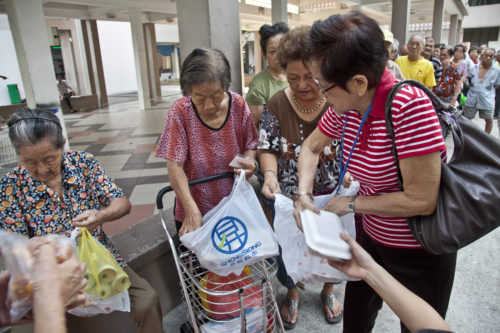
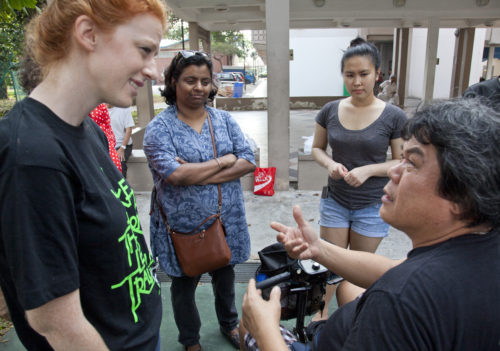
Join us for the screening of an award-winning documentary film, Cotton for my Shroud, by Kavita Bahl and Nandan Saxena on 1 June (Wednesday), from 2.00 – 4.30 pm, at the CNM Playroom. This event includes the film screening, followed by a Question and Answer session with the filmmakers. The film focuses on the farmer suicide crisis in India, situating this within the wider neoliberal context of governance in India that has shaped the agricultural industry. If you are interested in attending this event, do register at the following link: http://goo.gl/forms/KTSgiu0w0hWXTgSA3 See you there!
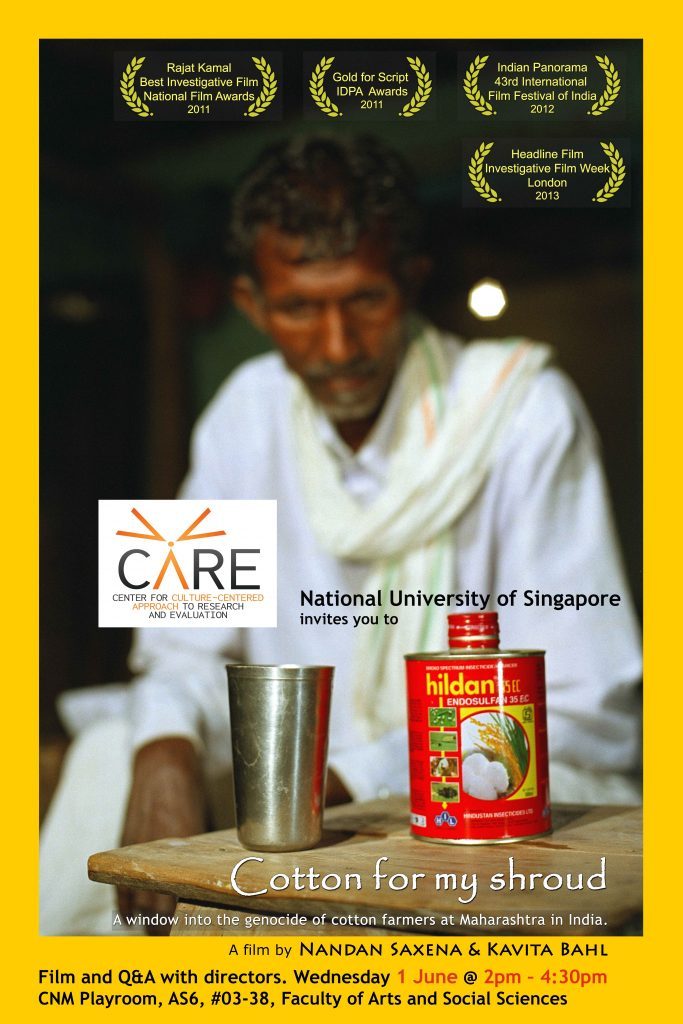
So what makes up news? Prof Mohan analyses an episode of the “News Hour Debate” to address the role of the Indian media in cooking up the anti-nationalism debate in India. By providing a few points to lay out the criteria of what makes news, Prof Mohan then deconstructs the Feb 10 episode and goes on to highlight the role of the media in shaping the national conversation and in driving public opinion in a one-sided manner. He also addresses how the media here serve as propaganda tools of the state. Watch the clip below.
Watch the video below as Prof. Mohan comments on the Greek Referendum.
Watch the video below as Prof. Mohan comments on the Greek Referendum.